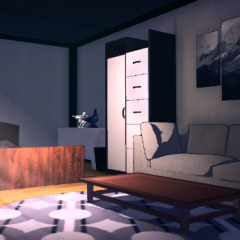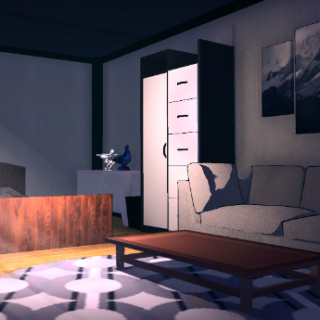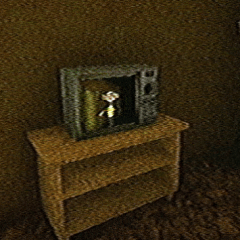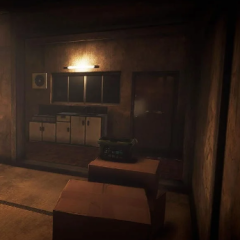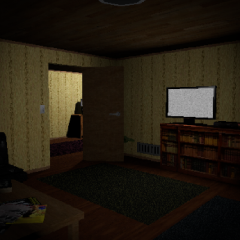Lihiman is a short narrative demo that invites the player to spend a quiet day with their family, only to discover that silence itself can hide something unsettling. Created by Kiwi Dreams, the game begins as a slow, everyday story — you wake up, walk through a modest home, talk to your relatives, and follow a simple routine. The air feels calm, the sound design soft, and the world familiar. Yet with every minute that passes, it becomes harder to tell whether you are living through a normal day or remembering one that has already ended.
A Familiar Place That Feels Wrong
The house in Lihiman looks like any other, but its warmth feels slightly artificial. Conversations are short, movements deliberate, and the quiet stretches too long. What begins as a safe domestic setting gradually transforms into a space of unease. Light flickers, footsteps echo, and a subtle distortion creeps into the air. The longer you stay inside, the more the rooms begin to feel like a reflection of something deeper — memory, guilt, or loss — rather than a real location.
Small Actions, Growing Tension
Lihiman keeps the controls simple, focusing the player’s attention on observation rather than challenge. You move through the house and interact with objects, triggering fragments of dialogue and faint shifts in the environment.
· Use WASD to move through rooms
· Look around freely with the mouse
· Press E to interact with family members or items
· Use F to activate a flashlight when darkness sets in
These actions don’t lead to puzzles or combat — instead, they create rhythm. Each click, each pause adds another layer of awareness, pushing the player to question what the game is actually showing and what it’s quietly hiding.
The Meaning Behind the Quiet
Lihiman’s name means “secret,” and that word defines the entire experience. The story isn’t about fear in a traditional sense — it’s about what exists beneath comfort. It asks the player to listen to the silence between words, to notice when familiar gestures start to feel rehearsed. The house becomes a stage where truth and memory blend, and the player’s role is not to escape but to understand.
What makes Lihiman memorable is its restraint. It never shouts, never forces, never shocks for effect. Instead, it allows unease to grow slowly — through routine, repetition, and small details that begin to contradict one another. In the end, it feels less like a game and more like a quiet dream that turns on itself, asking one final question: what if the people you trust the most are part of the secret you were never meant to find?

